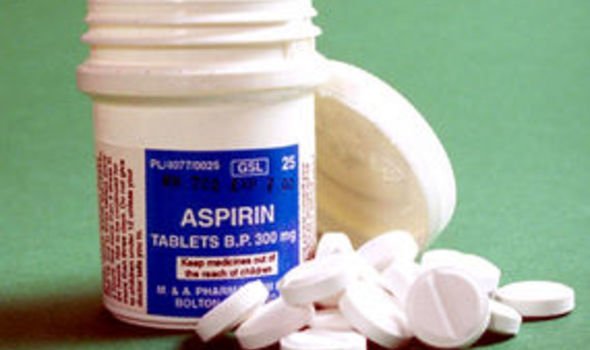
ASPIRIN DANGER TO THE BRAIN
Story Image
BRAIN THREAT: Aspirin
Wednesday April 15,2009
By Jo Willey, Health Correspondent
A DAILY dose of the 'wonder drug' aspirin can cause bleeding in the brain, researchers have found.
Brain scans on more than 1,000 patients revealed a 70 per cent higher incidence of microscopic bleeding among those taking the drug.
The shock findings will be of major concern to the millions of Britons who take aspirin every day to stave off fatal heart attacks and strokes.
The drug is used to thin the blood, which reduces the risk of dangerous clots forming in key blood vessels.
At the moment, I would only give it to people at high risk of heart attack
î
Dr Mike Knapton, associate medical director of the British Heart Foundation
Previous research has already shown that anti-clotting medicines can increase the risk of bleeding in the gastrointestinal tract – the oesophagus, stomach, or intestines.
But the new findings suggest they can also raise the odds of “cerebral microbleeds” that can be a sign of brain vessel disease.
British experts welcomed the findings but urged people using aspirin not to suddenly stop taking their medication.
Dr David Werring, honorary consultant neurologist at the National Hospital for Neurology and Neurosurgery in London, said: “More research is needed to decide whether these micro-bleeds raise the risk of serious bleeding in the brain in people who take aspirin.
"Bleeds to the surface of the brain suggest a condition of a hardening of the arteries which may increase the risk of brain haemorrhage.
“But it is clear for the vast majority of aspirin users that the benefits far outweigh the risks.”
The latest study by Dutch researchers, published online in the Archives of Neurology, found no increased incidence of microbleeds in people taking clot-preventing drugs that act in different ways, such as heparin.
Both aspirin and carbasalate calcium, a chemical relative of aspirin, prevent the formation of clots by acting against platelets, the blood cells that form clots.
Aspirin is typically given to people at risk of heart attacks or stroke but can also be prescribed to patients with high cholesterol, high blood pressure or diabetes.
As a long-term anticoagulant or a preventative measure for heart disease, the standard dose is 75mg of aspirin a day.
As a painkiller, the recommended dose is 275 to 300mg every six to eight hours, not exceeding three doses a day.
The study found people who took a relatively low dose of aspirin – 89mg – compared with those who took 102.8mg of carbasalate calcium – the equivalent of 82.2mg of aspirin – suffered more microbleeds.
At equivalent dosages, aspirin users were at nearly four times the risk of microbleeds compared with carbasalate calcium users.
The researchers at Erasmus MC University Medical Centre in Rotterdam found that when microbleeds occur in certain brain areas, they may indicate a type of small vessel disease known as cerebral amyloid angiopathy.
This involves the accumulation of a protein often related to Alzheimer’s disease which causes degeneration of smooth muscle cells and increases the susceptibility of blood vessels to rupture.
Dr Meike Vernooij and his colleagues accepted that the beneficial effects of anti-clotting drugs for individuals at risk for heart attack and stroke typically outweighed any risks of bleeding.
But they added: “Nevertheless, it may be that in selected persons such as those with signs of cerebral amyloid angiopathy, this risk-benefit ratio may differ for certain drugs like aspirin, thus influencing treatment decision.”
Dr Mike Knapton, associate medical director of the British Heart Foundation, said: “Aspirin is an antiplatelet drug and it is not surprising that it increases the risk of microbleeds.
“With any drug you have got to balance the risks of it versus the benefits, so you wouldn’t give aspirin to absolutely everybody.
“At the moment, I would only give it to people at high risk of heart attack.”
quarta-feira, 15 de abril de 2009
An aspirin-a-day can make your brain explode
Marcadores:
SAÚDE
Assinar:
Postar comentários (Atom)
![Validate my Atom 1.0 feed [Valid Atom 1.0]](valid-atom.png)























































Nenhum comentário:
Postar um comentário